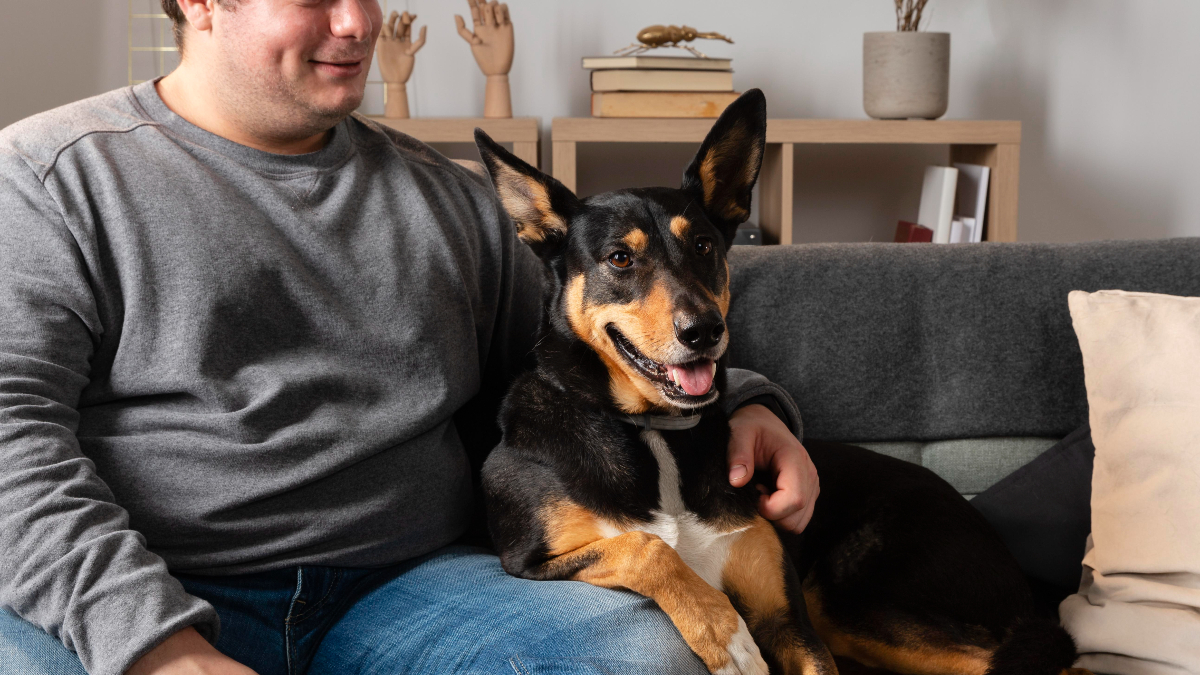
Man’s best friend can sometimes be a real burden. Too excited, or lazy, or mischievous, or anything else their owners would rather they not be. But those are passing things, every dog will have mood swings, or get sick or anything else a living creature goes through – though certain things are a bit more frequent.
Habits die hard, goes the saying. And while people cannot talk to them, it is still possible to notice behavior and habits that are outright strange – some behavior when they are around other people, how they react to food, a certain noise they make when they’re bored, etc. These habits are maybe not troublesome per se but are strange and unwanted, and correcting them is a gradual process that requires some patience and knowledge.
Why Dogs Develop Habits?
Habits are an easy way of getting through life. Instead of thinking and figuring out every possible thing you encounter, you develop a certain pattern that does that “for you”. It’s a similar thing with most sapient creatures. Recognizing patterns helps predict and overcome problems, and habits are one of the physical expressions of that.
Strange behavior, though, is another thing. People will consider something strange if it doesn’t fall into their view of normal, and this also applies to the favorite four-legged companions. It may be barking at completely mundane things like pots and pans, it may be walking in circles for long periods, it may be drooling for no apparent reason, etc.
These things are clearly out of the ordinary as they do not fit into the pattern of normal behavior, and should be corrected where possible.
Practices to Correct Behavior
To make things clear, it’s not easy to teach a dog new tricks, and it is even more difficult to correct established habits. The process requires patience and time, as anything else could ruin the results. Also, note – some breeds are more receptive to (re)training than others. A dog acting strange is nothing to stress about, unless it’s aggressive behavior. In which case professionals may be needed.
Using Treats
The age-old approach to teaching any animal how to behave (without resorting to violence) is to use treats. The very simple drive to be rewarded with something tasty is enough motivation for dogs to obey commands. For example, if you have a dog that jumps on or is being a nuisance around guests – use some very tasty treats (like pieces of meat) to teach it to sit.
Every time it sits down after the command, you give one treat. After a while, they start reacting to the command without even being offered a treat, though an occasional reminder is welcome!
Learning Through Play
Dogs react very positively to playing, as they are very social animals and often express themselves through such activity. Use this as much as possible to correct antisocial habits. If a dog doesn’t respond well to other people except you (the owner), then having someone there to play catch with you and the dog is a great idea. Not only will everyone be having fun, but the dog will also get accustomed to other people.
Regular Check-Ups
There is another thing that may cause strange habits yet is not visible – some sort of illness. Stomach problems and even more serious issues such as cancer may be causing excessive drooling or making them lick themselves excessively. Dogs should be taken to the vet for regular check-ups either way, but even more frequently if you suspect something may be amiss.
Trick or Treat?
Dogs being unfriendly towards other dogs can also be troublesome behavior in some cases. If you live in a remote area and need a dog to keep away wild animals – sure, it’s not strange. But in an urban environment, where you’ll most likely encounter other people with dogs – that is usually unacceptable.
Make sure your dog gets enough socializing with other dogs while still young. Taking it out for walks and letting it play in a dog park does a great deal to alleviate future problems. If not, then it is for the best to work up socialization slowly to avoid any fights and injuries.
Dogs are just great when they behave properly, they’re loyal, fun, and easy to maintain. But when acting strange – it can be very troublesome, from aggression to health problems, any kind of strange habits should be checked and corrected accordingly so that no harm comes to any side.
While people consider them their best friends, it’s worth remembering that the other way is true too.




